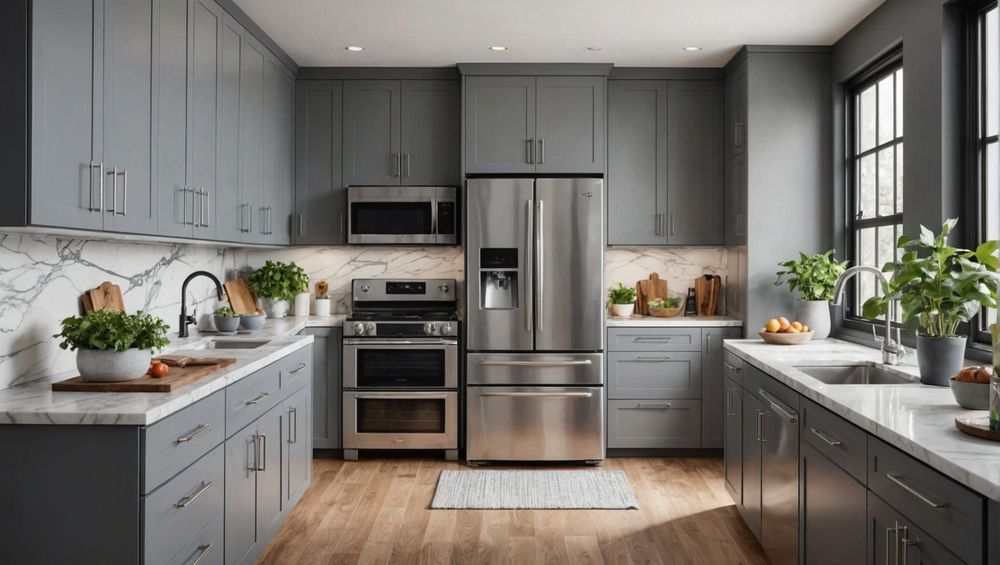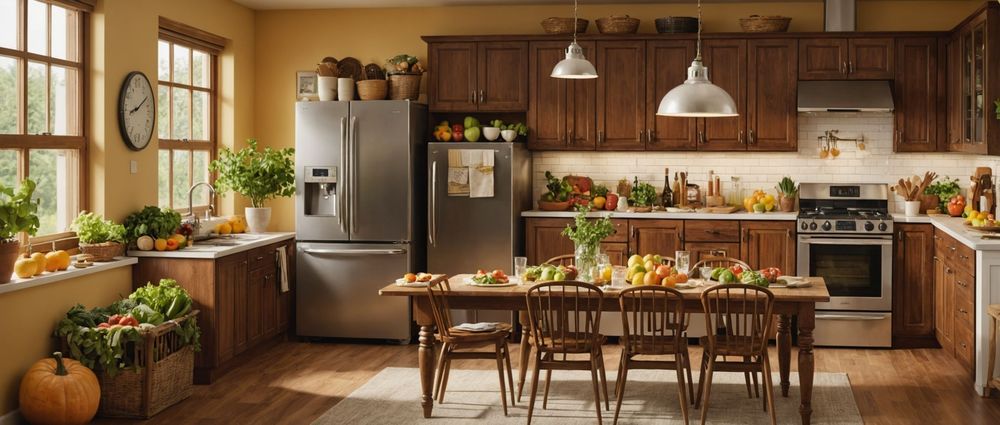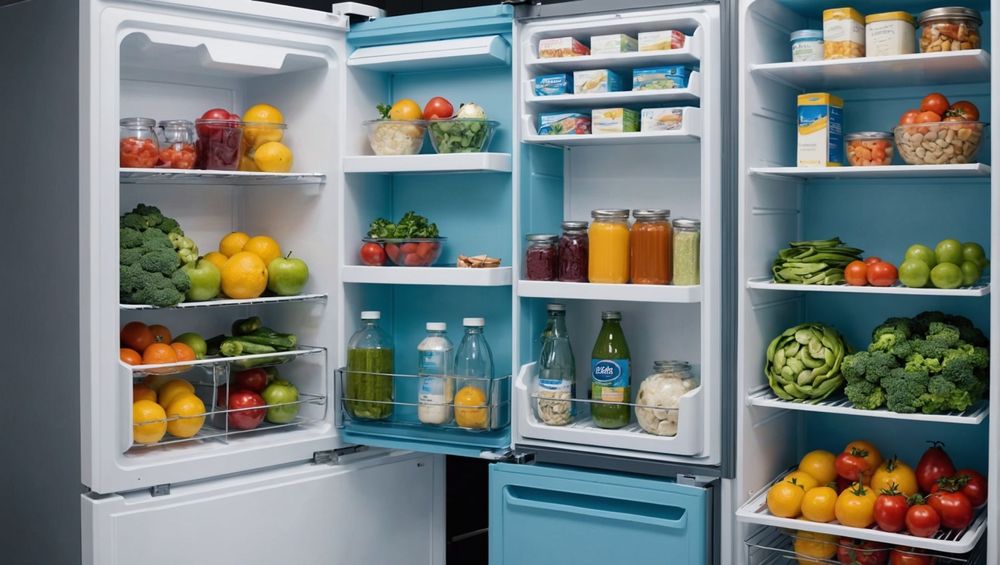Inverter refrigerators are revolutionizing the way we store food and manage energy consumption in our homes. These appliances stand out due to their advanced technology, which allows for more efficient cooling, energy savings, and enhanced food preservation. By adapting the compressor’s speed depending on the cooling demand, inverter refrigerators provide a smarter, quieter, and more reliable solution compared to traditional refrigerators. This article will explore the numerous benefits of inverter refrigerators, making it clear why they should be on your radar when considering a new appliance.
Understanding Inverter Technology

Inverter technology refers to a system that adjusts the compressor speed according to the cooling requirements. Unlike conventional refrigerators that operate at a fixed speed and turn off completely when the desired temperature is reached, inverter refrigerators maintain a consistent cooling temperature by modulating the compressor speed. This results in several advantages:
- Energy Efficiency: By running the compressor at varying speeds, inverter refrigerators consume less electricity, leading to savings on your energy bills.
- Quieter Operation: With fewer start-stop cycles, these refrigerators operate more quietly, providing a peaceful home environment.
- Better Temperature Control: The precise control over cooling leads to more stable and optimal temperatures, preserving food freshness more effectively.
- Longer Lifespan: Lower mechanical stress on the compressor means less wear and tear, potentially extending the appliance’s longevity.
- Environmentally Friendly: By using less energy, inverter refrigerators contribute to a reduced carbon footprint, making them better for the planet.
Energy Savings Over Time

One of the most compelling reasons to invest in an inverter refrigerator is the cost savings on energy consumption. The initial price may be slightly higher compared to traditional models, but the long-term benefits vastly outweigh the upfront investment. Studies have shown that inverter refrigerators can save you up to 30% more energy, which adds up over years of use. Here’s how you can quantify your savings:
- Assess your current refrigerator’s energy consumption (kWh/year).
- Estimate the wattage of an inverter model and its average energy consumption.
- Calculate the difference in power costs between the two models based on local electricity rates.
With smart budgeting, the savings from an inverter refrigerator can potentially cover its cost within just a few years while contributing to a greener home.
Enhanced Food Preservation
Inverter refrigerators are designed not only to cool but also to preserve your food better. The technology allows for consistent temperature control, which is crucial for maintaining the quality and safety of your food. Fluctuating temperatures can lead to freezer burn or spoilage, but an inverter model minimizes these risks. Here are a few ways they enhance food preservation:
- Constant Cooling: Eliminates the risks associated with temperature fluctuations during compressor cycling.
- Humidity Control: Maintains optimal humidity levels, which helps in maintaining the texture and flavor of food items.
- Better Airflow: Inverter models are often designed with improved airflow systems, which distribute cold air evenly across all shelves.
- Adjustable Settings: Some inverter refrigerators come with special zones for fruits, vegetables, and other perishables, optimizing their storage conditions.
Convenience and Features
Modern inverter refrigerators come equipped with a variety of features that enhance convenience for users. Many models include smart technology, allowing you to monitor temperature settings remotely or receive alerts about maintenance needs. Additional features to consider include:
- Smart Controls: Wi-Fi enabled models let you manage your fridge via smartphone apps.
- Adjustable Shelving: Flexible shelving options make organizing food easier.
- Icemakers and Water Dispensers: Built-in systems that save space and provide accessibility.
- Specialty Compartments: Specific zones designed for different food types, such as meat drawers or crisper bins that extend the shelf life of fruits and vegetables.
These innovations reflect a commitment to enhancing user experiences, proving that inverter refrigerators marry technology with practical home solutions.
Conclusion
Inverter refrigerators represent a forward-thinking investment for anyone looking to maximize their kitchen’s efficiency, save on energy bills, and preserve food better. The technology, coupled with features designed for modern living, creates a compelling case for their use in homes. With their quieter operation, energy-saving capabilities, and enhanced food preservation processes, opting for an inverter refrigerator is indeed a smart choice for the long term. As consumer awareness increases, the advantages of inverter technology stand out, making these refrigerators not just a smart choice but almost a necessity in today’s eco-conscious world.
FAQs
1. Are inverter refrigerators more expensive than traditional ones?
Yes, inverter refrigerators usually have a higher initial cost; however, they save more on energy bills in the long run, making them cost-effective over time.
2. How much energy can I save with an inverter refrigerator?
Inverter refrigerators can save you 20-30% more energy compared to conventional models, depending on usage and efficiency ratings.
3. Do inverter refrigerators require special maintenance?
Not particularly; regular cleaning and filter changes are typically sufficient, but refer to the manufacturer’s instructions for specific guidance.
4. What features should I look for in an inverter refrigerator?
Look for adjustable shelving, built-in ice makers, and smart technology options that allow for remote monitoring and controls.
5. How can I tell if a refrigerator is an inverter model?
Check the specifications and features section when purchasing; inverter refrigerators will explicitly mention inverter technology or variable speed compressors.





